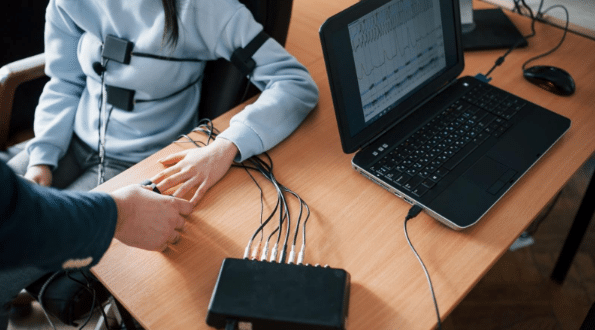Proof of licensing is a critical requirement while scouting for a polygraph examiner. As polygraph laws vary by country and state, it’s even better if an examiner possesses a license applicable in their respective jurisdiction of practice.
A license symbolizes competence and professionalism. It validates that a polygrapher has undergone rigorous training in an accredited school and adheres to established industry guidelines.
Besides, a license is proof of legal existence. It provides peace of mind knowing you can enter into a legally binding contract with a polygraph examiner.
But how do you confirm the validity of a polygrapher’s license?
One way is to understand the bodies responsible for issuing examiner licenses in various jurisdictions. Here’s a guide to polygraph licensing around the world.
United States
Polygraph regulation in the United States varies widely, as fewer than half of all U.S. states require or offer official licensing for examiners. The United States has no federal polygraph licensing system. Rather, examiners must obtain licenses at the state level.
However, the US maintains one of the most robust lie detector test laws around the world. Of notable mention is the Employee Polygraph Protection Act (EPPA).
EPPA bars most private sector employers from subjecting their employees to mandatory lie detector tests.
According to the Act, employers cannot use polygraphs as a general background screening tool during hiring, and they are prohibited from testing employees regarding claims of sexual harassment, since such matters do not constitute financial or property loss to the company.
EPPA Exemptions
EPPA doesn’t apply to public sector departments, with national security organizations being a noteworthy exemption.
That explains why agencies like the Federal Bureau of Investigation (FBI) have since integrated lie detector tests into their employee recruitment processes.
The Department of Defense (DoD) also routinely conducts polygraphs on prospective contractors.
Besides public sector institutions, EPPA also exempts providers of security services and companies that handle controlled substances.

Interpreting EPPA Within the Context of Polygraph Licensing
EPPA doesn’t bar polygraph exams in totality. The act only prohibits mandatory lie detector tests. That means recruiters may still rely on polygraph findings to prequalify job candidates, provided that the examinees willfully consent to getting polygraphed.
EPPA also permits polygraph testing in workplace investigations involving specific incidents that result in economic or property loss to the employer—so long as the employee provides informed consent and state law does not prohibit it.
Perhaps admissibility is the real concern here. Even if an examinee willfully submits to getting polygraphed, an employer will be hard-pressed to get the findings allowed in criminal jurisdictions.
This is where working with a licensed examiner can make a significant difference.
Many US states maintain unique polygraph licensing requirements. Where a licensing framework exists, there’s a better chance of getting polygraph tests admissible, even if only in civil proceedings.
State-based Polygraph Licensing Bodies
As of November 2025, polygraph licenses are either unavailable or unrequired in the following states/territories;
- Colorado
- Connecticut
- Delaware
- District of Columbia (DC)
- Florida
- Georgia
- Hawaii
- Idaho
- Kansas
- Maryland
- Massachusetts
- Minnesota
- Montana
- Pennsylvania
- New Hampshire
- New Jersey
- New York
- Rhode Island
- Texas
- Washington
- Wisconsin
- Wyoming
If you’re planning a polygraph test in any of these states, the focus should be on hiring an examiner accredited by the American Polygraph Association (APA) — and preferably one vetted through GPN — to ensure proper qualifications and credibility.
Meanwhile, the rest of the states have official polygraph licensing bodies. Examples include;
- North Dakota – Office of Attorney General
- Oklahoma – Oklahoma Board of Polygraph Examiners
- Tennessee – Private Investigations and Polygraph Commission
- Vermont – Vermont State Police Polygraph Section
- Virginia – Virginia Polygraph Examiners Advisory Board

Polygraph Licensing Around the World
1. Canada
Up north, polygraph laws are quite hazy. There’s no nationwide licensing program, understandably due to the lack of formal admissibility.
Canada Supreme Court has since ruled that lie detector tests are inadmissible in criminal legal proceedings. Civil cases are an exception in certain instances, usually on both parties’ consent.
2. United Kingdom
The United Kingdom has no single polygraph licensing body. Most examiners who practice in the country receive their training and certifications abroad.
If you’re looking to schedule a polygraph test in the UK, seek out an examiner who belongs to professional organizations like the APA — and ideally one who has also been pre-screened through GPN for added credibility.
UK polygraph examiners should adhere to both the APA’s protocols and the guidelines set out by the College of Policing. The latter organization has been instrumental in developing polygraph standards, particularly for law enforcement examiners.
3. Australia
Australia lacks a national polygraph licensing system.
All licenses are state-based, and most states have yet to enact robust lie detector laws. Only New South Wales has since enacted a specific polygraph act.
NSW’s Lie Detectors Act of 1983 prohibits the mandatory administration of lie detector tests for various purposes, including criminal liability, pre-employment screening, workplace investigations, and insurance fraud.
4. China
China’s polygraph licenses are almost exclusively available to government examiners. The country’s Ministry of Public Security licenses polygraphers for criminal investigations, with licenses strictly available to duly certified examiners.
However, admissibility is a whole new ball game. A 2020 directive from the Supreme People’s Court determined that polygraph findings are inadmissible, as the technique isn’t backed by conclusive scientific evidence.
5. South Africa
Like most countries, South Africa has no elaborate polygraph laws. That means there’s no official body licensing examiners.
But if you choose to hire a polygraph examiner in South Africa, ensure they possess accreditations from both the APA and the South African Professional Polygraph Association (SAPPA) and preferably work with a GPN-screened examiner for added confidence in their qualifications.

Wrap Up
Choosing a licensed polygraph examiner confirms you have the right person for the job. But more importantly, the license must be relevant in the examiner’s jurisdiction of practice.
The best way to ascertain the validity of a polygraph license is to understand the organizations that are charged with licensing examiners in various states and countries. While the United States has fairly robust lie detector laws, polygraph regulations are almost non-existent in most other countries.
We should also point out that polygraph findings are largely inadmissible in criminal cases. Whether you’re an examiner or examinee, it’s prudent to keep an open mind while approaching these evaluations.






